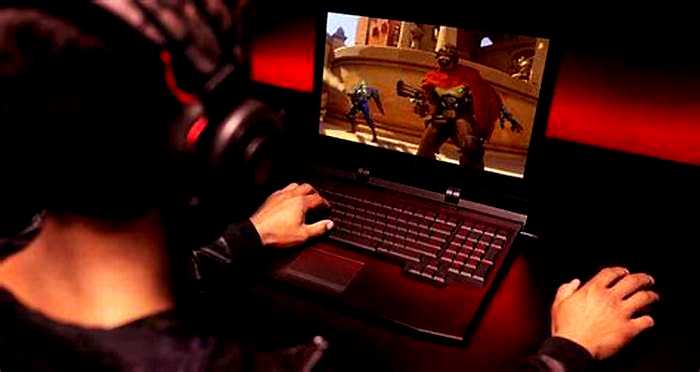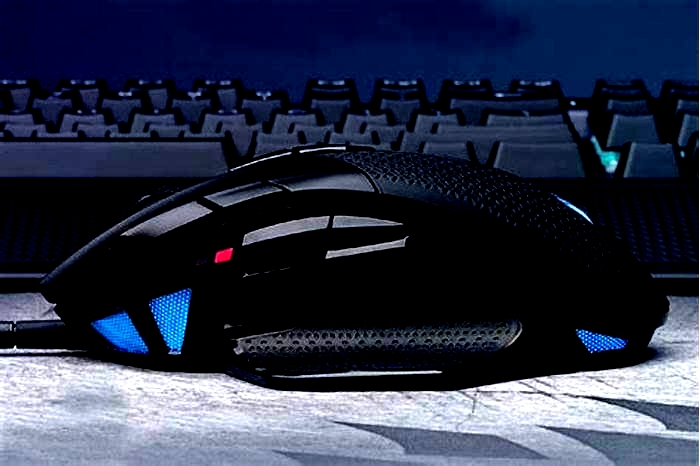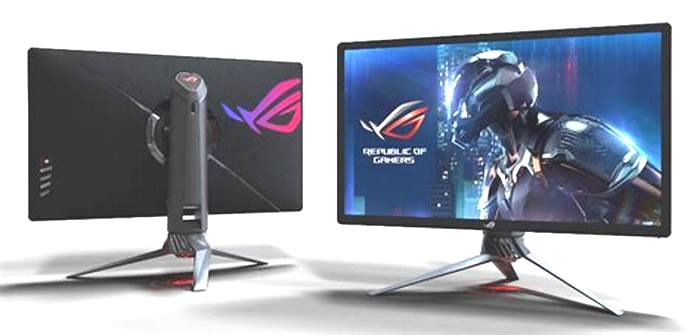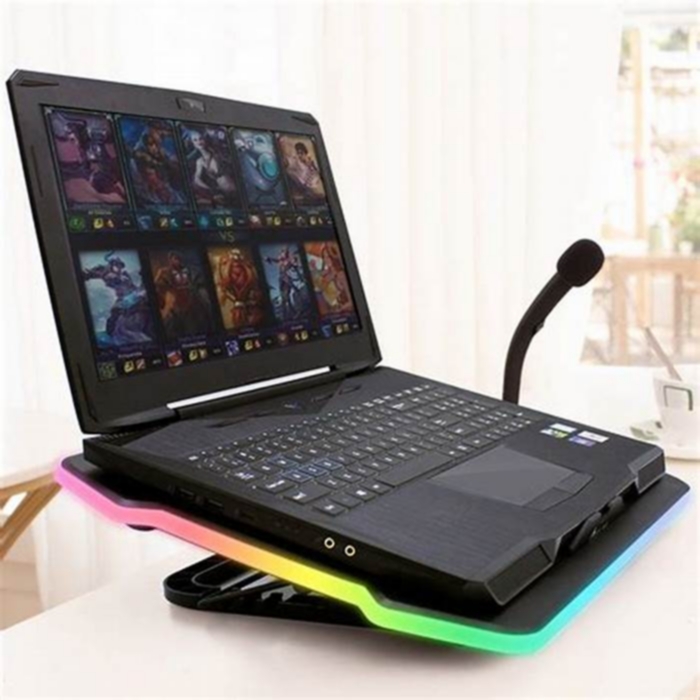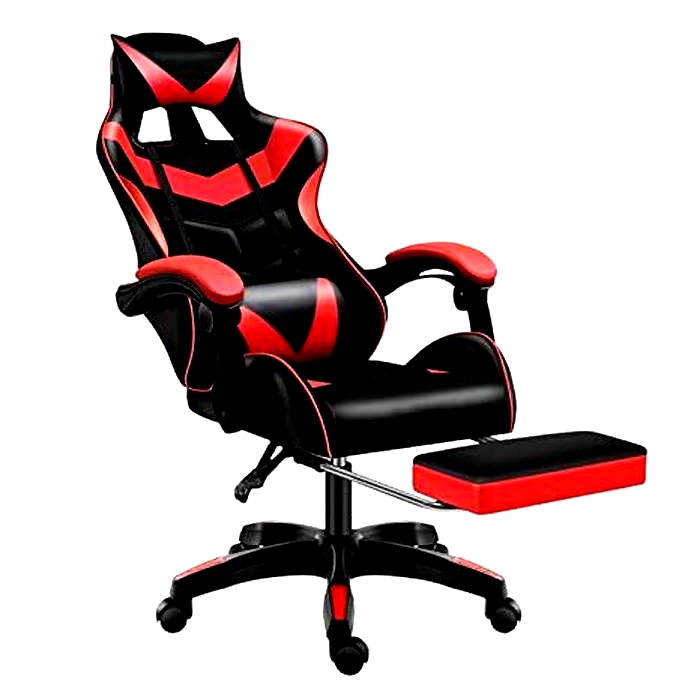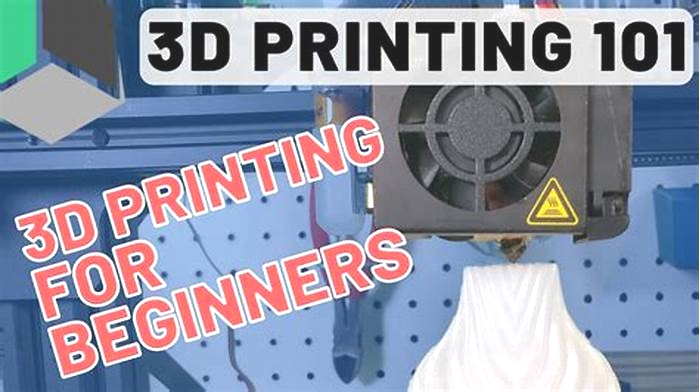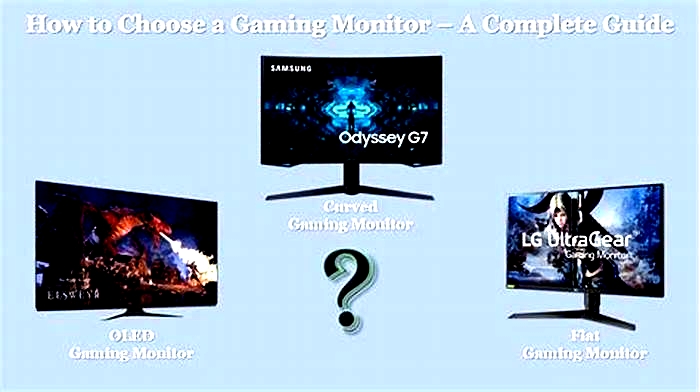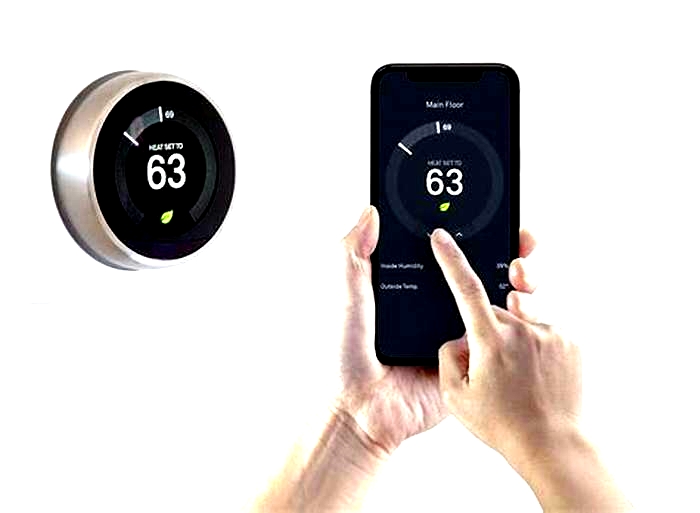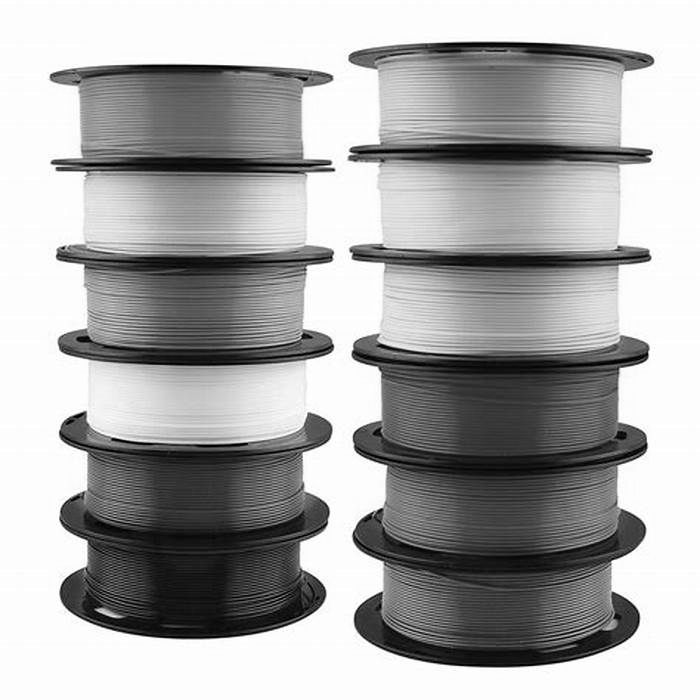The Ultimate Guide to Choosing the Right Gaming Laptop
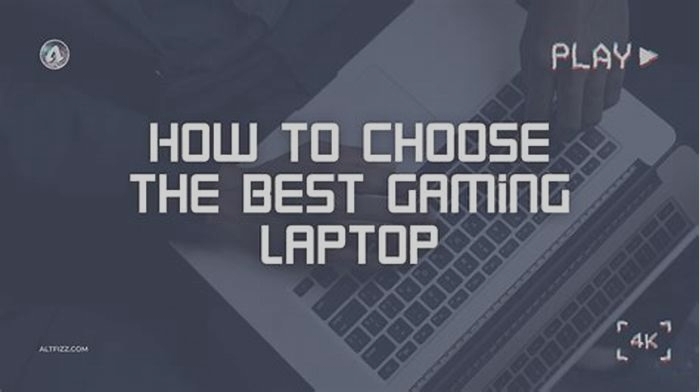
The Ultimate Guide to Buying the Right Gaming Laptop
Gaming laptops have come a long way, and buying the right gaming laptop is now easier than ever. However, with so many options in the market, it can be overwhelming to choose the right one. Investing in a good gaming laptop can be expensive, but it is worth it if youre a serious gamer. In this guide, we will walk you through some of the considerations you need to keep in mind when buying a gaming laptop.
Processor
The most essential part of any gaming laptop is the processor. It plays a crucial role in determining the speed, performance, and responsiveness of the laptop. The processor is responsible for carrying out all the instructions of the software and games you run on your laptop. So, make sure you choose a powerful and efficient processor. We recommend the Intel Core i5 for budget-friendly gaming laptops and Core i7 or i9 for high-end gaming laptops.
Graphics Card
In addition to the processor, the graphics card is another vital component in gaming laptops. It is responsible for rendering images, textures, and lighting effects in video games. The better the graphics card, the smoother and more immersive your gaming experience will be. NVIDIA and AMD are two popular brands when it comes to graphics cards. Generally speaking, a 4 GB graphics card should suffice for most games, but if you want to play the latest and greatest games, go for an 8GB graphics card.
RAM
RAM is another critical component of gaming laptops. It is responsible for storing data temporarily, and the more RAM you have, the more applications or games you can run smoothly at the same time. However, most games require a minimum of 8GB of RAM, but for better performance, aim for 16GB or more.
Display
The display is an essential part of every gaming laptop. It plays a significant role in your gaming experience, and you want a screen that can render high-quality graphics without screen tearing or lagging. Choose a display that offers a high resolution and refresh rate. A 1080p or 1440p display with a refresh rate of at least 120Hz is ideal for most gamers.
Keyboard and Touchpad
The keyboard and touchpad are essential for every gamer. You want a keyboard that is responsive and has enough travel distance for a comfortable gaming experience. A backlit keyboard is also ideal for gaming in low-light conditions. The touchpad should be large enough for your needs and should be responsive and accurate.
Benefits of Gaming Laptops
- Portable: Gaming laptops are highly portable, which means you can take them with you wherever you go and enjoy gaming without any hassle.
- High Performance: Gaming laptops come with powerful hardware components, so you can enjoy the latest games without any lag or stuttering.
- Upgradeable: Gaming laptops are highly upgradeable, so you can easily add new components to enhance its performance.
- Affordable: Compared to desktop computers, gaming laptops are relatively more affordable and offer great value for money.
- Stylish Design: Most gaming laptops come with a stylish design that looks great and catches the eye of everyone around you.
Conclusion
Buying the right gaming laptop can be challenging, but with this guide, you should be better equipped to make an informed decision. Remember to consider the processor, graphics card, RAM, display, and keyboard and touchpad when making your decision. Its essential to choose the right balance of specifications and features that align with your gaming requirements. Good luck with your new gaming laptop, and happy gaming!
How to pick the right gaming laptop
Processor (CPU)
The processor is the brain of a laptop, so its an important component to consider while purchasing a laptop. The processor runs all the games and applications. To play modern games, that are highly demanding on hardware, you really need a performance processor. One way to look for a high-end processor is to look at the clock speeds (GHz - gigahertz). Higher the core speed, higher the performance of the processor. Of course, an entry-level Intel Core i3 with a high clock speed wont get you far. An Intel Core i5 or Core i7 clocked at high speeds would be a better option. Similar, making comparisons of core speeds between AMD and Intel processors can be misleading. Preferably look for core speeds, between processor from the same series of a specific brand. As games get more advanced, their dependence on the cores increase. A laptop with a quad-core processor would be the ultimate performer. A similar method has to be used while looking at number of core on a processor, as we did with the core speed. Intel processors tend to be largely recommended for gaming laptops, and thats what you might find in most cases. Look for laptops, running at least a new generation, Core i5 processor. The Core i7 series of processors carry more features. Latest generation processors are designed deliver better performance, while being more efficient.
Graphics card (GPU)
This is the most component in any gaming laptop. The graphics card is in charge of the processing and rendering the game on the screen. This task is too much for the processor to handle, so a dedicated graphics card is needed, if you want to enjoy games on your laptop. Without a good graphics card, you wont be able to run a game at its best resolution or quality. Even if you get the quality, youll see the game stutter. In gaming performance terms, the frame rate would be too low. Some games wont even run, if your graphics card specifications doesnt meet the minimum requirement of the game.

NVIDIA and AMD are the two big names in graphics solutions. There are plenty of options to choose from, depending on your gaming requirement. Remember, the Intel integrated solution will only let you play really basic titles, so look for the large NVIDIA GeForce or AMD Radeon stickers on the laptops youre looking for.
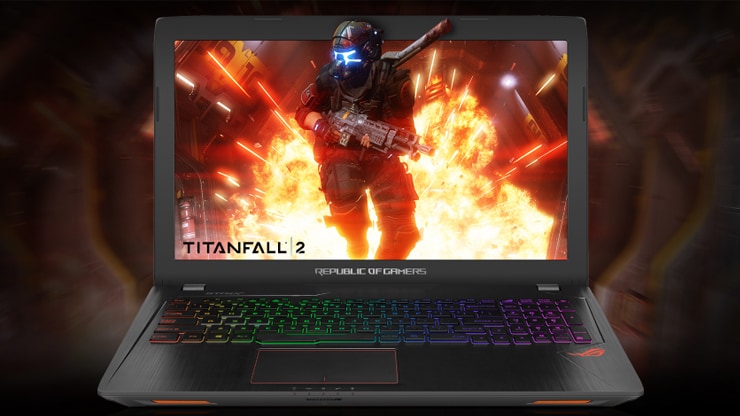
If you just want to enjoy moderate amount of gaming, then we recommend looking for something like the NVIDIA GeForce GTX 960M. Among AMD GPUs, look out for the Radeon R7 series. These graphics card will support most games and also fall under the affordable category. If you dont want any compromises, then you need to invest in a really high-end graphics card. NVIDIAs latest GeForce 10 series of cards and AMDs Radeon R9 GPUs are the ones to look out for. High-end graphics cards let you even run virtual reality apps and games on your laptop.
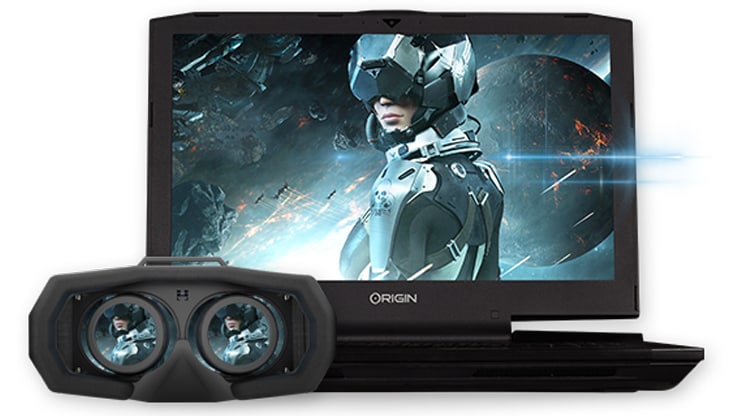
Its good to have an idea of what youre going to be playing on the laptop. Consider all the features that are important to you, including VR and 4K support. Unlike desktops, you cant upgrade the graphics card in a laptop, so its important to choose wisely. Additional performance will let you use your laptop for longer, as game demands increase.
RAM
Games are far larger in size than they used to be. The general thumb rule for games is, higher capacity RAM is better. When youre looking at purchasing a gaming laptop, ideally opt for laptops with 8GB of RAM or more. In most cases, 8GB of RAM should suffice, although 16GB would be recommended, if youre looking at a higher spec laptop. Some laptops let you upgrade the amount of RAM, so you might be able to increase the amount of RAM at a later time. Just be aware of the warranty policy from the manufacturer before you do that.
Storage

A single game can take up in excess of 50GB of storage space on your laptop, so its advisable to purchase a laptop with at least 1TB of storage. It should be enough to store all your games. When buying a laptop, you can also consider SSDs (Solid State Drive) instead of hard drives. They dont have any moving parts like the conventional hard drives do, so theyre faster, lighter and more power efficient. Their benefits include faster loading time and faster transfer speeds. They add to a lag-free gaming experience. If SSDs are a little too expensive, inquire if the hard drive on the laptop runs at 7,200 RPM speed. While most drivers operate at around 5200 5400rpm, 7200rpm drives will deliver better transfer rates.
Screen resolution
The whole point of investing so much money on a gaming laptop, is to enjoy games in the best quality, with the maximum detail. The standard HD resolution (1366 x 768) doesnt quite do justice. Try to look for laptops that come with 1600x900 or better still, full HD (1920x1080) resolution displays. The difference is noticeable, not just with games but other applications as well. Having a higher resolution also gives you more screen space to work with. 4K resolution is also an option available on laptops today. No doubt you get extreme sharpness, but those laptops are also expensive. It also requires more processing power and battery.
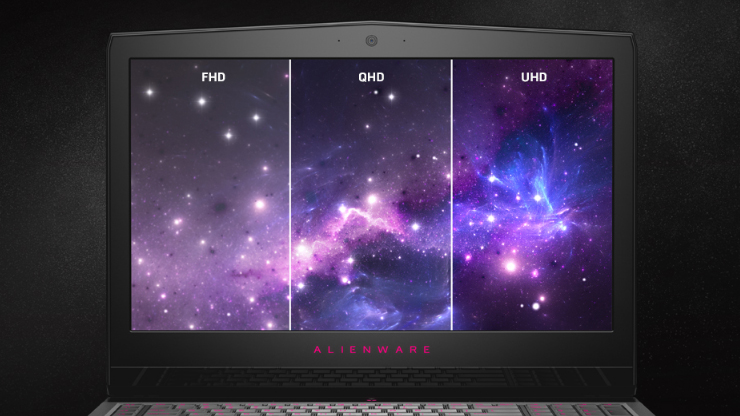
If given the option, choose IPS panels over TN (Twisted Nematic), mostly because they offer better viewing angles and vibrant colours. Another thing you need to consider is if you want a matte or a glossy screen, but thats mostly a personal choice. We wouldnt recommend a touch screen laptop for gaming. Theyre expensive and games dont really use touchscreens yet.
Keyboard
Youre probably going to spend countless number of hours mashing the keys on the laptop. A good gaming laptops needs to have a keyboard that can withstand that. Besides that, you need to be comfortable using it. Pay attention to the key travel so theres some movement rather than a flat, hard one. It should feel more tactile and should have good feedback. Look at laptops with a backlit keyboard, which will come in handy during long gaming sessions at night. Some laptops also have multi-coloured backlights for certain keys which can be customized with the help of built-in software. However, this has more to do with the looks than function. Not to mention, these kind of features add to the cost.

You can also invest in separate mechanical keyboards that are specifically designed for gaming. They are generally better than the keyboards on laptops, and will last much longer. You can even get keyboard with customizable backlights that we mentioned. Of course it doesnt just end there. To make the most of gaming laptops, you also need to equip it with the right accessories. Look out for specialized gaming mouse. They offer more features that come handy while playing games. Gaming laptops also heat up a lot, so a cooling pad can also help. A Steam account is the next thing to do. There are plenty of free titles to choose from, as well as great deals on offer that come up every weekend.

Ultimately, choosing the right gaming laptop also comes down to the budget. So we recommend giving importance to the essentials first, which include a good GPU, processor and screen. You can choose the other features based on your requirement. Take your time and research on models and features, because a gaming laptop is a big investment. Its also your gateway to a good gaming experience.
The Ultimate Guide to Gaming Monitors: Choosing the Perfect Display for Your Setup
The Ultimate Guide to Gaming Monitors
Selecting the perfect gaming monitor is a crucial decision for any gamer looking to elevate their gaming experience. With a myriad of options available, each boasting different specifications and features, its essential to make an informed choice that suits your gaming style and preferences.
In this comprehensive guide, well walk you through the key factors to consider when choosing a gaming monitor, ensuring that you find the perfect display for your setup.
Resolution
- 1080p (Full HD): Ideal for budget-conscious gamers and those with mid-range graphics cards. Provides a nice blend of performance and visual quality.
- 1440p (Quad HD or 2K): Offers sharper visuals and increased detail. Requires a more powerful GPU for optimal performance.
- 4K (Ultra HD): Delivers stunning image quality with incredible detail. Requires a high-end GPU to run games at native 4K resolutions.
Refresh Rate
- 60Hz: Standard for most monitors but may feel less smooth in fast-paced games.
- 144Hz: Strikes a good balance between smoothness and affordability. Ideal for most gamers.
- 240Hz: Offers exceptional smoothness and responsiveness, best suited for competitive esports players.
Panel Technology
- IPS (In-Plane Switching): Offers vibrant colors and wide viewing angles but may have slower response times.
- TN (Twisted Nematic): Known for faster response times but narrower viewing angles and less vibrant colors.
- VA (Vertical Alignment): Provides deep blacks and good contrast but may have slower response times.
Response Time
- Lower response times, measured in milliseconds (ms), reduce motion blur and ghosting. Look for 5ms or lower for smooth gaming.
G-Sync and FreeSync
- These technologies synchronize the monitors refresh rate with your GPUs frame rate, reducing screen tearing and providing a smoother gaming experience. Ensure compatibility with your graphics card.
HDR (High Dynamic Range)
- HDR enhances contrast and color, providing a more immersive gaming experience. Look for monitors with HDR support if image quality is a priority.
Size and Curvature
- Monitor size is a matter of personal preference, but 24 to 27 inches is common for gaming.
- Curved monitors can enhance immersion but are not essential for all gamers.
Connectivity
- Ensure the monitor has the necessary ports (HDMI, DisplayPort, USB) for your gaming setup, including consoles and peripherals.
Budget
- Set a budget and stick to it. Gaming monitors come in various price ranges, so theres an option for every budget.
Brand and Warranty
Reputable brands like ASUS, Acer, BenQ, and MSI often offer reliable gaming monitors. Examine the warranty and customer service offered by the manufacturer.
User Reviews and Testing
Read user reviews and seek hands-on testing from reputable sources to get insights into real-world performance and user experiences.
Future-Proofing
Consider how long you plan to keep the monitor. Investing in a monitor with features like a high refresh rate and HDR can help future-proof your setup.
Try Before You Buy
If possible, test the monitor in-store or at gaming events to ensure it meets your expectations.
Conclusion
In conclusion, choosing the perfect gaming monitor involves considering a range of factors, including resolution, refresh rate, panel technology, response time, and budget. By carefully assessing your gaming preferences and hardware capabilities, you can select a monitor that enhances your gaming experience and brings your virtual worlds to life.
Whether youre a casual gamer or a competitive esports enthusiast, the right gaming monitor can make a world of difference in your gameplay.

